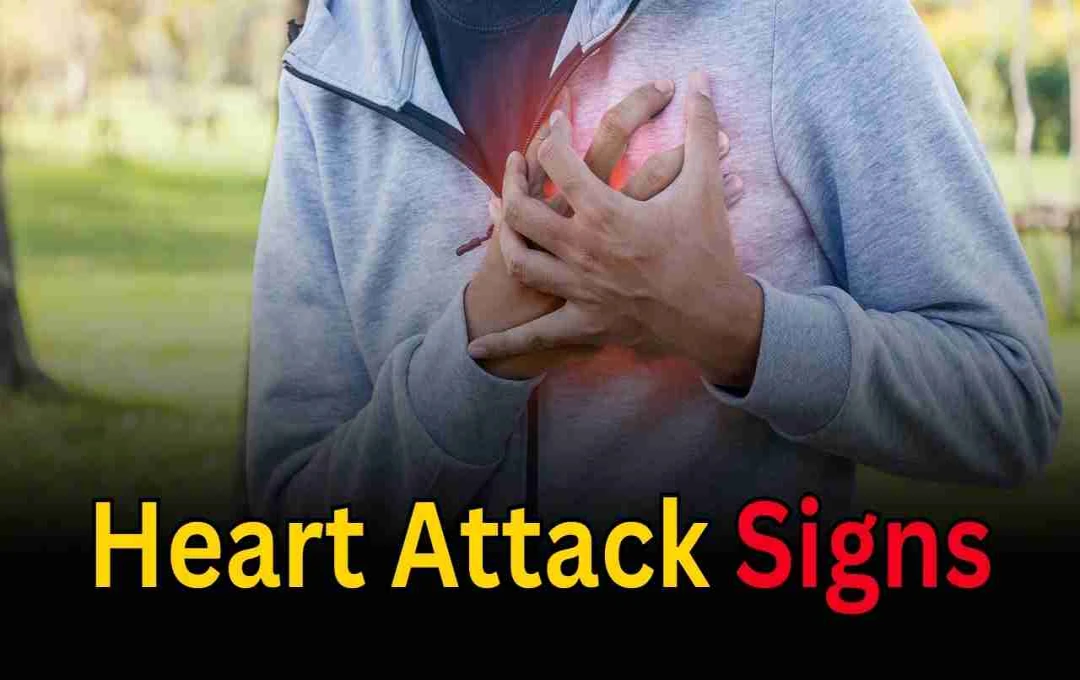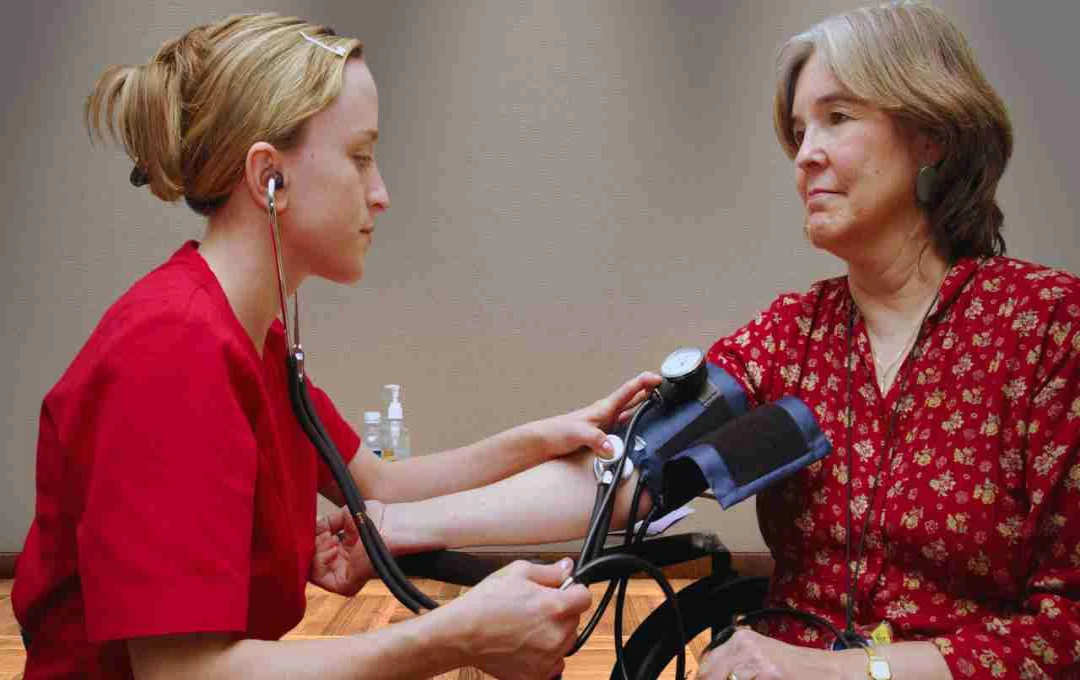A heart attack does not occur suddenly; rather, the body provides several warning signs beforehand, such as chest pain, shortness of breath, unusual fatigue, pain in the shoulder and back, dizziness, and sweating. By not ignoring these symptoms and consulting a doctor in time, a major danger can be averted, and the heart can be kept safe.
Heart Attack Signs: Heart diseases are rapidly increasing, and even young people are now falling prey to heart attacks. Experts say that the body gives certain specific signs before a heart attack, such as chest pressure, difficulty breathing, unusual fatigue, pain in the limbs, or sudden dizziness and sweating. Doctors believe that if these symptoms are identified in time, investigated, and lifestyle is improved, the risk of heart attack can be significantly reduced.
Chest Pain or Pressure
The most common sign of a heart attack is experiencing chest pain or pressure. This pain is not always severe; sometimes, it can feel like mild burning or heaviness. Some people ignore it, mistaking it for gas or acidity. However, persistent discomfort can be an indication of a serious heart problem.
Shortness of Breath

Another major symptom preceding a heart attack is shortness of breath. If you experience difficulty breathing without exertion or suddenly become breathless while climbing stairs, it should not be taken lightly. This could be a sign of increasing pressure on the heart.
Unusual Fatigue
People often overlook general fatigue. However, if you feel unusually tired even while performing simple daily activities, it could be a sign of heart trouble. This symptom is particularly common in women and is often ignored.
Pain in Other Parts of the Body
Before a heart attack, pain is not confined to the chest. It can radiate to the shoulders, back, arms, or jaw. The pain may be intermittent rather than constant. Sometimes, people ignore it, mistaking it for muscle pain, but it can be an early sign of a heart problem.
Dizziness, Sweating, and Uneasiness

When a heart attack is suspected, the body may suddenly exhibit symptoms like dizziness, cold sweats, and uneasiness. These symptoms often appear without any specific reason. Ignoring them when they occur suddenly can be dangerous.
Why Heart Attacks Are Increasing
In today's fast-paced life, people are paying less attention to their health. Habits of consuming fast food, junk food, and oily food are weakening the heart. Along with this, stress and lack of physical activity put additional strain on the heart. The rising incidence of blood pressure and diabetes is further exacerbating heart diseases.
Timely Identification is Crucial
Doctors believe that the risk of a heart attack becomes significant when people fail to recognize the initial signs. Chest pressure, shortness of breath, unusual fatigue, pain in other body parts, sudden dizziness, or sweating – all these are indicators of heart problems. If recognized in time and investigated immediately, the danger can be averted.
The increasing risk of heart diseases has become a major concern today. It is essential for people not to take these symptoms lightly and to be vigilant in time. Small changes in the body often signal a major illness. Therefore, understanding and paying attention to them is extremely important.















